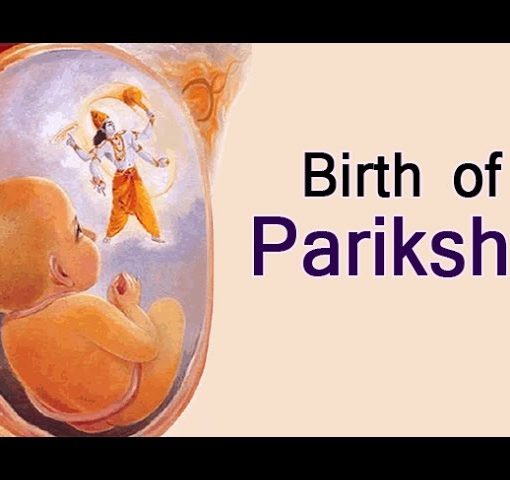Exploring the Transformative Journey of Śrī Nārada Muni in Śrīmad-Bhāgavatam 1.6
The sixth chapter of the Śrīmad-Bhāgavatam describes a pivotal conversation between Śrī Vyāsadeva and his spiritual master, Śrī Nārada Muni, which unveils the secrets of spiritual transformation. It is a narrative of not just transcendental knowledge but also of deep devotion and divine mercy.
In this chapter, Vyāsadeva, the literary incarnation of the Lord, becomes deeply inquisitive about the life of Nārada Muni—how he transitioned from a simple maidservant’s son to one of the greatest sages. By detailing Nārada’s past life, spiritual journey, and profound realizations, this chapter serves as a guiding light for sincere seekers aiming to advance in their spiritual path.
Nārada’s Humble Beginnings
The chapter begins with Vyāsadeva’s inquiry: how did Nārada attain such a high spiritual status despite being born as the son of a humble maidservant? Nārada, the son of Brahmā, recounts his previous life with humility and gratitude. He was a young boy living with his mother, who was a maidservant to saintly sages. Despite the meager resources, he was blessed with the association of these great sages, who visited his village during the Chāturmāsya period.
During their stay, Nārada developed an attraction for their teachings and activities. He served them with dedication, learning the essence of transcendental knowledge. His innocent and sincere service attracted the blessings of these saints, and they initiated him with spiritual knowledge, awakening his dormant love for God. This brief association laid the foundation for Nārada’s spiritual ascent.
The Turning Point: Nārada’s Mother’s Departure
A significant turning point in Nārada’s journey was the sudden death of his mother, who was bitten by a serpent one night while returning from her duties. This tragic event, though painful, marked a divine intervention in Nārada’s life. Deprived of any material attachment, Nārada embraced this incident as the Lord’s mercy. His mother’s departure freed him to fully dedicate himself to spiritual pursuits.
This is a crucial lesson for spiritual aspirants: life’s adversities, though challenging, often act as catalysts for spiritual growth. For Nārada, this event was a clear indication from the Lord to pursue a higher purpose, leading him to embark on a journey toward divine realization.
Nārada’s Determination and Spiritual Realization
Without any attachment, Nārada set forth toward the northern direction. He traveled through various towns, villages, forests, and rivers, witnessing the beauty of the Lord’s creation. Throughout his journey, Nārada maintained a strong desire to attain the Supreme Lord. He practiced meditation under the guidance of the sages’ teachings, concentrating his mind on the Lord’s lotus feet.
The culmination of Nārada’s intense meditation was a brief yet transformative vision of the Supreme Personality of Godhead, Śrī Kṛṣṇa, within his heart. Nārada describes this moment as an overwhelming experience where tears flowed incessantly and he felt a divine ecstasy beyond material comprehension. However, this bliss was short-lived, as the Lord soon disappeared from his heart, leaving Nārada feeling both joy and deep separation.
This fleeting encounter was meant to increase Nārada’s longing for the Lord, a divine strategy employed by the Lord to intensify a devotee’s love. The Lord’s disappearance sparked an even deeper desire in Nārada’s heart to seek Him, teaching us that spiritual longing and separation are potent forces that lead to stronger devotion.
The Lord’s Instruction: A Lesson in Patience and Devotion
Seeing Nārada’s desperation, the Lord spoke to him in a gentle and compassionate voice, explaining that Nārada would not be able to see Him again in that life. The Lord cited Nārada’s remaining impurities as the reason for this, emphasizing that one must be completely free from material taints to behold the Lord’s form continuously. However, the Lord also encouraged Nārada, assuring him that the glimpse he received was a benediction to fuel his longing and devotion.
The Lord’s words illustrate an essential principle of bhakti-yoga: the importance of patience and sustained effort in devotional service. Devotion is not a mechanical process but a heartfelt surrender that evolves over time. The Lord’s assurance instills hope that every sincere endeavor in devotional service yields spiritual progress, even if not immediately visible.
The Birth of a Transcendental Preacher
After receiving this divine instruction, Nārada continued his journey with greater enthusiasm. He began to chant the holy names and pastimes of the Lord, using a vīṇā, a celestial musical instrument gifted by Lord Kṛṣṇa. Nārada describes how, while singing the Lord’s glories, he felt the Lord’s presence within his heart, offering him immense satisfaction and freedom from material desires.
Nārada’s transformation was complete when, at the end of his life, he received a spiritual body fit for serving the Supreme Lord in the spiritual realm. As Brahmā’s new day began, Nārada reappeared in his transcendental form, free to roam the three worlds and spread the glories of the Supreme Personality of Godhead.
This transformation underscores that devotional service leads to spiritual liberation—an internal change of consciousness that is not bound by material limitations. Nārada’s life serves as a testament to how pure devotion transcends material barriers and opens the doors to the eternal, blissful service of the Lord.
Nārada’s Unending Service and the Power of Bhakti
With a vīṇā in hand, Nārada roams freely across the material and spiritual realms, constantly engaged in glorifying the Lord. His narration to Vyāsadeva concludes with the profound realization that the chanting of the Lord’s holy name is the most potent means of crossing the ocean of material existence.
The chapter highlights the universal applicability of nāma-saṅkīrtana, the chanting of the holy names, as the most effective method for spiritual advancement, especially in the Age of Kali. It offers solace to those burdened by material anxieties, illustrating how engaging in bhakti-yoga not only liberates the soul but also brings joy, peace, and fulfillment.
Call to Action: Embarking on Our Own Journey of Bhakti
The conversation between Nārada and Vyāsadeva offers us several takeaways:
- Seek Association of Devotees: Just as Nārada’s transformation began with the company of saintly persons, we too should seek the association of pure devotees to ignite our spiritual progress.
- Embrace Life’s Challenges as God’s Mercy: Nārada’s response to his mother’s untimely death shows that adversities can be opportunities for spiritual growth, provided we see them as the Lord’s arrangement.
- Cultivate Intense Desire for the Lord: Nārada’s persistent longing for the Lord despite setbacks teaches us the importance of vairāgya (detachment) and anurāga (attachment to God) in spiritual life.
- Chant the Holy Names: The chapter emphasizes the transformative power of the Lord’s holy names. Engaging in nāma-saṅkīrtana not only purifies the heart but also brings the Lord’s presence into our lives.
- Stay Committed to Devotion: Despite temporary setbacks, perseverance in devotional service is key to spiritual success. Nārada’s life teaches us that the Lord reciprocates with those who serve Him sincerely.
The chapter ends with Nārada departing, glorifying the Lord through his vīṇā, spreading divine vibrations across the universe. His example invites us to take up the path of bhakti with sincerity, dedication, and love. By following in Nārada’s footsteps, we too can transform our lives and attain the supreme goal of life: Kṛṣṇa-prema, or pure love for God.
May this chapter inspire you to embark on your own journey toward the divine, with Śrī Nārada Muni as your eternal guide!
Conclusion
The journey of Śrī Nārada Muni, as described in Śrīmad-Bhāgavatam 1.6, is a beacon of hope for all spiritual aspirants. It reveals that anyone, regardless of birth or background, can achieve the highest spiritual perfection through the process of bhakti. This chapter is not just a story; it is a call to action, urging us to embrace devotion, cultivate spiritual longing, and engage in continuous service to the Supreme Lord. As we read, reflect, and apply the teachings of this sacred text, may we also be blessed with the divine vision of the Lord and the eternal service of His lotus feet.





